
Are you daunted by the modern world of cloud computing? Companies are constantly on the lookout for methods to enhance their productivity and many have opted for cloud computing – a viable alternative to traditional IT infrastructures. But what is it, and how does one differentiate between the various types of cloud computing?
In this blog post, we will be exploring different varieties of cloud services like storage space, platforms etc., as well as hosting options and data security available with each provider to help you pick out which kind would suit your enterprise best.
Understanding the Basics of Cloud Computing

Cloud computing has become an integral part of the modern digital landscape, however, a lot of folks are unaware of the basics of this monumental technology. If you’re contemplating shifting your data onto the cloud or simply just want to learn more about how it works then some lots needs knowing. So at its very core, basically what cloud computing does is – instead of having software installed on hardware; It employs remote servers over the internet for utilization purposes.
Cloud computing enables users to access data and applications from anywhere with an internet connection – be it in the comfort of your home, at work or out and about. What’s more, cloud computing makes sharing info across several different devices a breeze without having to tediously upload each file separately. Its strength lies in its capacity for securely storing large quantities of data on distant servers linked via networks – economically too!
Linking up a bunch of servers into one virtual pool is an effective way for organisations can bolster their systems with increased reliability than any single server could offer. Businesses have seen the value in several types of cloud services, such as Infrastructure as a Service (IaaS), Platform as a Service (PaaS), Software as a Service (SaaS) and Hybrid Cloud solutions which amalgamate on-premises hardware resources alongside public cloud offerings. With Iaas, you simply pay for access to equipment from third-party providers; while PaaS provides tools for development apps over the web – no matter where you are located!
Software as a Service (SaaS) is becoming increasingly popular among businesses. It enables them to access web-based applications, like Gmail or Office 365, without having the hassle of hosting and updating these programs themselves. Even better is that with hybrid cloud solutions, organisations can enjoy more control over their data by running both private and public clouds in tandem; thus helping them perform processes such as data analysis safely and securely.
Since it hit the scene so many years ago Cloud Computing has come on leaps and bounds when it comes to safety and efficiency – meaning companies who took advantage of all its benefits had no issue dramatically boosting productivity whilst cutting operational costs! Knowing how each type of service works could help you capitalise on this technology for your own business needs – maybe you’re just after an improved IT system or perhaps want a deeper understanding of what modern-day cloud computing encompasses.
Delving into Different Types of Cloud Computing Services
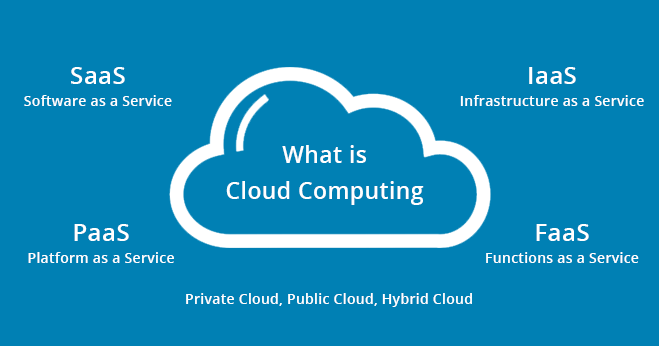
Diving into the various types of Cloud Computing Services has been a captivating experience for me. I began my voyage by gaining knowledge about the four main kinds of cloud computing – Infrastructure as a Service (IaaS), Platform as a Service (PaaS), Software as a Service (SaaS) and Function as an Assistance (FaaS). The idea of SAA particularly caught my attention, where programming applications are facilitated on the cloud and made accessible to clients through the web. How amazing is that?
This type of cloud computing is right now being widely adopted by businesses due to its many advantages – cost savings, scalability and flexibility. Going further from SaaS, I then got a handle on PaaS which is mostly used by developers for creating web applications using programming languages without having to manage hardware or operating systems. With the help of PaaS, developers can concentrate more on developing their applications rather than worrying about infrastructure management; making it simpler and effective for them. How convenient would it be if you could focus on building your application without thinking about how many servers are needed?
As with SaaS, there are plenty of advantages to making use of PaaS – cost savings because investments in infrastructure have been minimised and scalability so that development teams don’t need to bother about managing increasing demands for their product or service. This got me really intrigued about what I had found out by this stage regarding the various forms of cloud computing services, and then led me on to explore Function as a Service (FaaS). Could it be possible that FaaS could provide similar benefits? It was time for further research…
With FaaS, developers can effortlessly develop applications that contain a range of functions like digital media processing, image recognition and text-to-speech conversion without having to bother about handling hardware or constructing server framework from the ground up. What’s more, they can pay only for what they use – on a per-function basis which is flexible based on usage requirements making FaaS highly economical compared to other cloud services. Have you ever thought how efficient it would be if this cost-effective model was available?
Finally, my journey brought me back around to Infrastructure as a Service (Iaas), which offers customers virtualised compute resources such as servers and storage rather than dedicated physical hardware or other underlying infrastructure components such as networking or firewalls. It gives organisations more authority over their IT infrastructure in terms of setup time and operational efficiencies while also cutting costs related to running conventional data centres. Investigating various types of cloud services has given me precious insights into how these technologies could gain businesses regardless of their size or industry sector, making them fiercer players in the current digital realm.
The Role of Cloud Storage in Today's Tech World
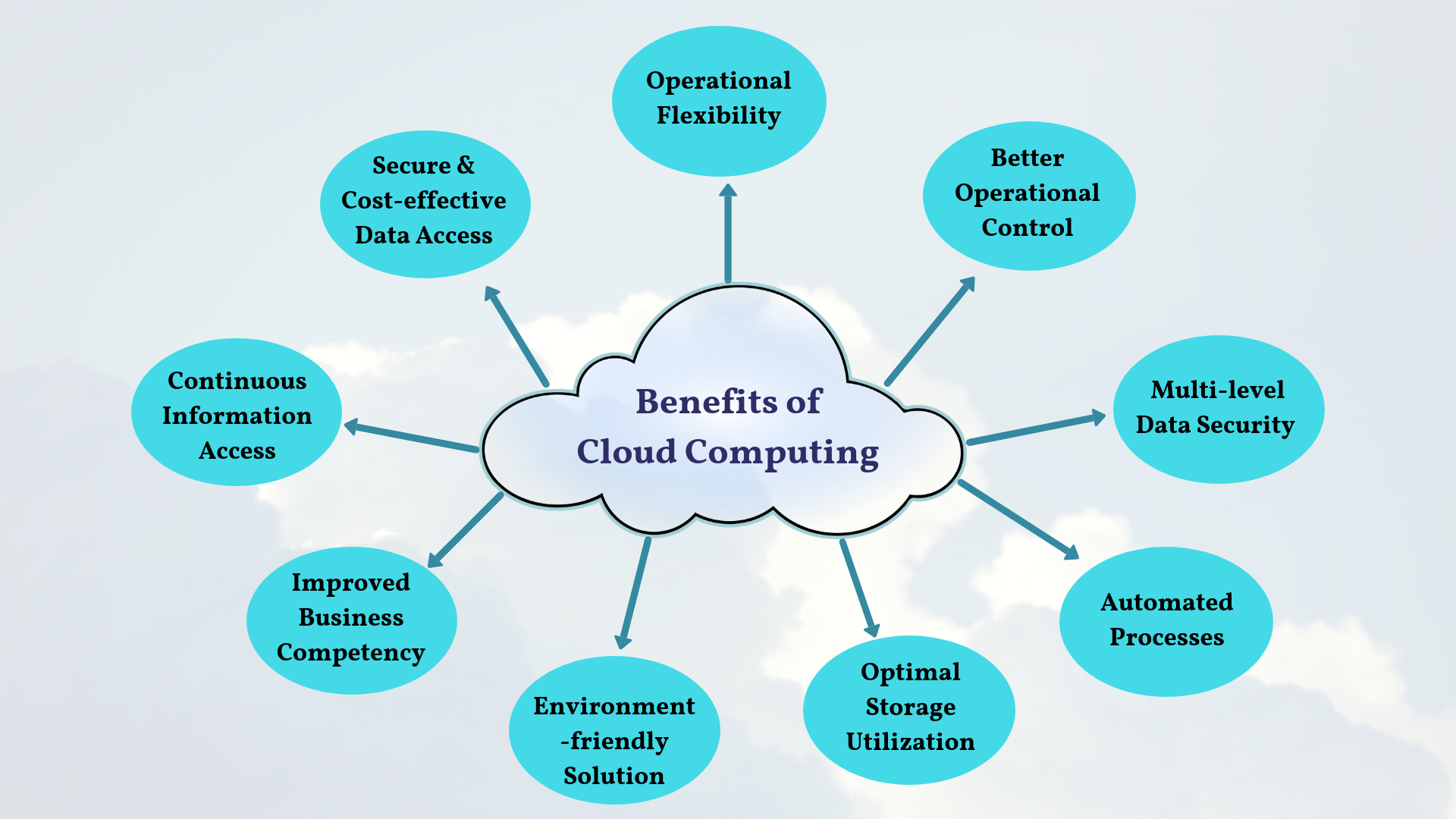
Cloud storage has truly transformed the way we keep our data. It provides businesses with an opportunity to store, access and spread essential information without having to bother about handling physical hardware. This is especially relevant in today’s tech-oriented era where cloud storage has become almost a must for digital operations of all kinds. Organizations are more likely to rely on cloud storage nowadays as it allows them to keep their data safe and easily reachable anywhere at any time they need it.
But there exist many different varieties of available cloud storage out there – which one should you go for?
Object-based storage is the most widely used type; with this, users can store files by giving each one a unique identifier. Block-based storage then takes it further and stores data in blocks which can be accessed individually as necessary. File-level storage offers up another option – you’re able to keep individual files instead of entire folders all at once. Finally, serverless computing eliminates the need for physical servers since applications run on an environment made up of virtual machines that are based in the cloud – pretty neat! Are there any other types out there? It would be interesting to find out more…
Cloud storage not only offers convenience and flexibility, but it also boasts improved security in comparison to traditional methods of data-keeping. Through encryption procedures and authentication protocols, businesses can ensure that any confidential information is kept safe from unauthorised access or malicious attacks when stored on the cloud. Additionally, many services provide automatic backups alongside disaster recovery features so organisations can quickly regain lost files or corrupted data should something go wrong with their systems/servers at some point down the line.
Moreover, cloud storage proves advantageous related to scalability compared with premises-based infrastructures since there’s no need for arduous capital investments required upfront due to its pay-as-you-go approach – making this ideal for firms of all shapes and sizes who wish to benefit from cutting-edge technologies without compromising financially during this transition period. It’s uncontested that cloud storage has already made a huge impact within modern digitalisation processes; plus will continue doing do so moving forward as more companies shift away from conventional solutions towards solutions..
Exploring Various Cloud Platforms and Their Features

These days, Cloud Computing is becoming more and more commonplace in the business and techno world. We’re talking about a model which provides services such as software, infrastructure or storage over the Internet – you can find various cloud platforms with different characteristics that businesses can take advantage of.
So it’s really important to do your research on these available options before selecting one appropriate for your needs; what features does each platform have? How would they benefit me specifically? Is there any specific type of service I should be looking out for? Answering these questions will help you make an informed decision when choosing the most suitable option.
When it comes to digging into cloud platforms, the main contenders are Amazon Web Services (AWS), Microsoft Azure and Google Cloud Platform (GCP). Each has a raft of features which enable customers to tailor their solutions for different purposes. AWS offers heaps of services such as virtualisation services, data storage and analytics amenities, compute power etc., plus many tools like identity and access management that help keep user data safe within the platform. Fancy knowing more about this stuff?
Microsoft Azure has a lot to offer – Infrastructure-as-a-service (IaaS), Platform-as-a-Service (PaaS) and Software-as-a-Service (SaaS). Its hybrid cloud options make it even better, allowing users the flexibility to choose an environment that suits their workloads. Not only this but Google Cloud Platform also provides highly scalable solutions for businesses looking for big data analytics which can be used to gain useful insights about user behaviour and other patterns through its products usage. Pretty nifty!
It’s vital that you set aside some time to investigate each of these cloud stages exhaustively so you can settle on an educated choice regarding which one works best for your organisation’s goals and objectives. Besides, it is similarly significant that you monitor any new advances or changes made by these suppliers with the goal that you would custom be able to your strategies suitably for most extreme streamlining favourable circumstances from a similar stage after some time.
To sum up, investigating various cloud platforms will guarantee that whatever cash or resources are placed into them renders the greatest benefits as far as cost reserve funds or higher returns over the long haul.
Hosting Solutions: A Comparison of Different Providers

When it comes to web hosting solutions, there are a variety of different providers offering an array of services. As such, when picking the right provider for you and your business needs, it is important to understand exactly how they differ from one another and how each could benefit your organisation.
In this blog post, we’ll take an in-depth look at various types of cloud computing and their associated hosting solutions available in today’s market. One kind of cloud computing solution that can be deployed is known as ‘Infrastructure as a Service’ (or IaaS). This type offers users virtualised hardware resources plus storage capabilities accessible via the internet – what kinds of advantages does deploying something like this bring?
Infrastructure-as-a-Service (IaaS) offers businesses a way to cut down their initial capital spend when it comes to buying physical equipment such as servers, routers and firewalls. Rather than purchasing these items themselves and having to maintain them, IaaS allows access to on-demand data centres so that companies can do away with the need for upfront charges.
Platform as a Service (PaaS) is another type of hosting solution which gives users all kinds of tools and services they require to build applications that match up with business demands quickly. Unlike needing to configure any underlying software stacks or infrastructure upon using PaaS there’s no requirement; you just develop your app!
Platform as a Service (PaaS) is a type of cloud computing service that provides the underlying infrastructure so companies can quickly develop their applications.
This can be extremely beneficial for firms which require quick application development cycles or have limited resources to manage IT infrastructure. Alternately, Software as a Service (SaaS) offers businesses software hosted on the internet; allowing them to access it anywhere and any time they need – all without having an initial cost connected with purchasing licenses or downloading apps onto their systems while only paying for services when required.
For businesses seeking greater control over their infrastructure and data security, private cloud hosting is an option to consider. Customers benefit from a dedicated set of resources that are managed by either an internal IT team or another third-party provider such as Amazon Web Services (AWS). Private clouds also enable customers to deploy custom applications quickly without any issues regarding public cloud security protocols or shared resource availability within other organisations’ environments.
At the same time, SaaS reduces IT maintenance costs since updates and upgrades are no longer handled internally; instead, it’s up to the SaaS provider. It all boils down to finding which solution best suits your needs in terms of budget constraints, existing infrastructure requirements etc.. That said, doing research on all available options before making your decision should ensure you select one that meets those specific criteria!
Simplifying Cloud Computing with Hosting Solutions
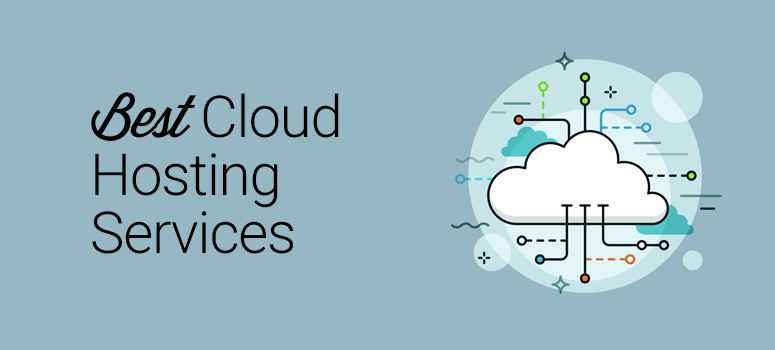
When it comes to cloud computing, there’s no shortage of options. Hosting solutions have grown in popularity recently for businesses wanting an uncomplicated way to use the cloud. By merging various services, hosting solutions give people a low-cost and straightforward means of accessing applications and data on the cloud.
Hosting solutions come with plenty of features that suit all kinds and sizes of business – from server clustering and distributed storage to application hosting, managed databases, instantaneous scalability and guaranteed backups without any downtime or disaster recovery provisions if things go wrong. What more could you need?
A fantastic advantage is that these services are typically hosted away from the workplace by an external organisation, meaning users don’t have to worry about needing extra physical room or ensuring hardware and software updates happen on-site. Many hosting solutions offer web-based control panels so people can manage their servers easily from any internet connection – how handy! Furthermore, they provide businesses with access to a wide array of cloud-based applications and services quickly and without difficulty.
Hosting solutions can take the hassle out of setting up cloud applications and services, giving users complete control over their environment as well as saving money on infrastructure management. These providers provide tools that make configuration changes fast and simple – perfect for organisations looking to streamline their IT operations in today’s digital world. What’s more, these hosting solutions allow you to access both public and private clouds with ease while also providing different levels of security at lower costs. All this makes it easier than ever before to take advantage of hybrid cloud systems without having extensive knowledge or understanding of network engineering or architecture.
Data Security: The Role of Cloud Computing in Keeping Information Safe
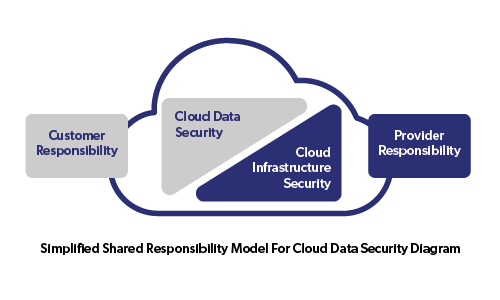
Data security is something many business owners take seriously, and for good reason – after all, in the digital age we live in now it’s crucial to ensure sensitive information doesn’t fall into the wrong hands. Fortunately, cloud computing provides a reliable way to do this as it allows businesses to store their data on remote servers; giving them peace of mind that no matter what happens with physical hardware or software their essential info will still be available. Additionally, using cloud storage enables businesses to control who has access to stored files and how they are accessed – so any additional layer of protection can help guard against data theft or unauthorised sharing.
This makes it trickier for any ill-intentioned individuals to get their hands on the data without being authorised or having permission. Additionally, a lot of cloud storage providers offer encryption services which adds another layer of security to your stored data – making them unreadable if no one has been allowed access or given authorisation.
Multi-factor authentication is also commonly used with most cloud storage service as they help protect users from anyone trying to log in without proper authority. Not only do you need a username and password but other credentials such as PINs, biometric scans or token codes are required before someone can gain access to company records – leaving lots more obstacles between those who have malicious intentions and all that sensitive information!
Along with encrypted transmission protocols and firewalls, multi-factor authentication helps to reduce the chances of data breaches or other cyber threats. It’s good practice for businesses to back up their data offsite in case anything goes wrong on site – such floods or fires can cause huge destruction if records aren’t backed up elsewhere. Cloud storage provides robust backup technology that enables companies to store copies of sensitive information away from the premises where it all takes place. Imagine how much chaos could be caused by natural disasters like flooding without a secure form of storing the heart and soul of your business.
Having multiple redundant back-ups located on various servers around the world, companies can quickly recover any data that’s lost should a disaster strike. All in all, cloud computing provides many perks when it comes to protecting company info from thieves or malicious individuals who could use it for negative purposes; with encryption services and multi-factor authentication available along with several backup options while maintaining control over those who have access to vital business materials – Cloud Computing does an important job of safeguarding our most valued possessions these days. That said, you still need to be extra vigilant!
The Role of Cloud Services in Enhancing Data Security

Cloud computing has become a crucial component of businesses all around the globe, enabling them to increase productivity and efficiency. One especially important aspect of cloud computing is how it can help improve data security. Numerous types of cloud services provide various functions when it comes to securing valuable info, this article will look into their role in keeping companies safe.
To get maximum data safety with an online solution the first thing to do is use encryption – but what does that mean? Encryption essentially scrambles your information so only authorised users can access or view it; thus making sure vital documents remain secure no matter who tries accessing them without permission.
Many cloud service providers come up with encryption as part of their services, to assist in protecting vulnerable info from any unlawful access or manipulation. This could indicate that all the conversations between the user and server are encrypted, or just a certain type of documents and data is being shifted amongst two points. For instance, many banking bodies now trust the encoding provided by various cloud computing alternatives for assured transactions online.
Another manner through which cloud computing can help with security is due to its capability of giving control over who gets access
By setting up user profiles that are restricted depending on the individual roles in a company, organisations can make sure only specified members of staff have access to delicate records or parts of the network. Cloud service providers usually offer this kind of feature as part of their bundles, enabling administrators to allocate permissions for every user while making certain any unauthorised attempts at accessing information are detected speedily for further assessment.
What’s more, cloud computing solutions also provide companies with a significantly heightened view into any seemingly suspicious activity happening on their networks – whether it be coming from inside or outside sources. Asking questions like ‘Who has what level of permission?’ and ‘Can I rely on my visibility over activities occurring within my virtual environment?’, businesses know they’re covered when using these platforms!
Monitoring all systems connected to a network – both internally and externally- helps detect any potential threats quickly, allowing organisations to tackle them before they cause damage. This level of monitoring affords extra protection against cyberattacks and other malicious activities that could compromise data security. No doubt cloud services provide an important role in enhancing the data security for companies across the globe.
Thanks to advanced encryption protocols, granular access control systems and comprehensive monitoring abilities, modern firms now have better tools than ever at their disposal when it comes to securing precious information from outside forces or unauthorised people. Is your organisation making use of these facilities properly?
The Transition from Traditional Storage to Cloud Storage

Cloud computing has revolutionised the way organisations save and share their data. It’s well-known as a preferred choice for loads of companies, due to its bountiful benefits over conventional storage methods. A key plus point is cost efficiency; with cloud storage relying on a pay-as-you-go model, you only have to fork out money for what resources you use – helping keep your spending in check. What’s more, it gives an incredible level of scalability too!
No doubt, cloud storage offers a lot more reliability than traditional solutions. If anything goes wrong with one server or any component of on-premise solution then it could be really difficult to protect your data without having an appropriate backup plan in place. But if you are using a cloud storage feature then there is no need to worry as all the lost information can be retrieved from offsite backup easily and rapidly – even though maintaining regular backups will remain important just as a safety precaution measure!
Additionally, what makes this option even better is that when compared with other sorts of storage solutions; its highly adaptive nature comes at little added cost while scaling up or increasing capacity for business growth purposes should not take much time either!
What’s more, since cloud computing doesn’t involve any physical hardware, there is no risk of a mechanical breakdown and no need to replace faulty machines – making it much more dependable than the old-fashioned storage solutions. Safety is an important thing to think about when deciding whether you should move off your regular data storage onto cloud computing – but despite what many people believe this isn’t necessarily less protected than conventional systems.
Cloud services make use of top-notch security measures such as encryption and multi-factor authentication, which offer strong protection against potential threats and hackers – giving extra assurance for people who are transitioning from traditional storage solutions to the cloud.
What’s more, switching from regular storage systems to cloud computing also opens up better collaboration between staff by making sure everybody always has access to the latest version of any document or file they require – no matter what device they’re working on or where they are based. This makes controlling documents much easier across large teams spread out over diverse places – something that would be hard with onsite equipment or outdated Storage systems.
Future of Cloud Computing: Predictions and Expectations
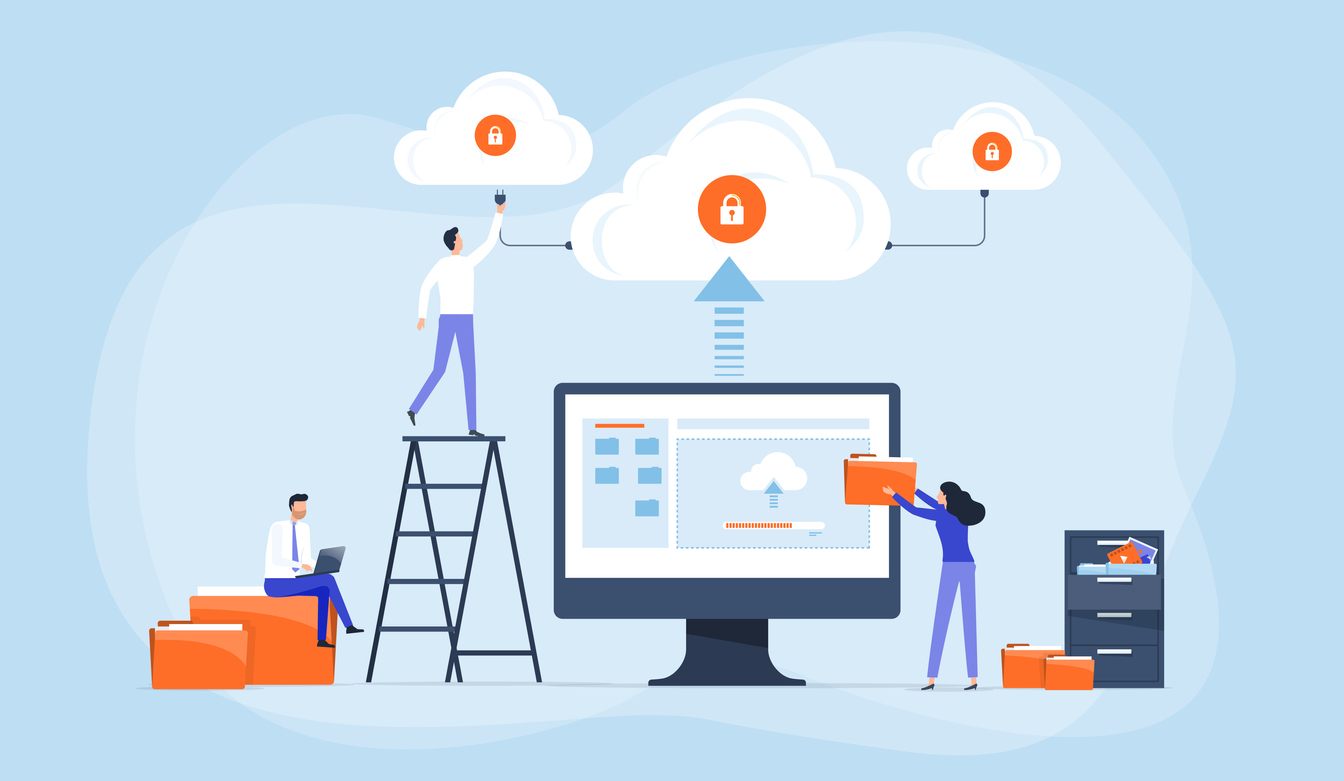
The future of cloud computing looks promising. Over the last 10 years, its popularity has tremendously grown and it’s expected to become even bigger in the days ahead. Cloud technology is believed to have a huge impact on our lives; from business initiatives to private data storage – all domains could be revolutionised due to this modern tech invention. Furthermore, various kinds of clouds offer unique gains for companies as well as people alike: how will you use them?
The most popular form of cloud computing is Infrastructure-as-a-Service (IaaS). It’s about organisations making use of a selection of virtual servers, storage networks and other services via the web. IaaS allows companies to store their data away from their premises securely without needing to take care of any hardware. It makes IT processes simpler and more cost-effective as firms can pay for just what they need rather than investing in costly equipment or software licence agreements. This way there’s no wasting resources on things that you don’t use – why spend money when it isn’t necessary?
Cloud computing has made life easier for organisations, giving them the ability to access their data from any corner of the world with an internet connection. This makes remote working a much smoother process than it used to be. Apart from this convenience, another type of service offered by cloud technology is Platform-as-a-Service (PaaS). It involves providing software frameworks and databases via the web which help developers quickly build applications effectively.
Questions arise – how have businesses coped without such advancements in tech? Would they still function as efficiently today if not for these helpful services?
Cloud computing has a bright future ahead of it. Businesses are increasingly relying on digital solutions for storing, managing and processing data securely all around the world – providing endless possibilities for how people work, interact and share information online. PaaS is particularly cost-effective since companies don’t have to purchase or maintain costly hardware such as servers or databases – they’re instead provided ‘in the cloud’ ready to go at minimal expense.
Meanwhile, Software-as-a-Service (SaaS) lets organisations access specific software applications over the Internet without any upfront costs associated with buying software licences; you simply pay a regular fee every month to use them – brilliant if you’ve got limited funds but want access to powerful enterprise-grade programs like CRM systems and accounting packages!
Wrapping Up!
To wrap it up, cloud computing can be a massive help to businesses. It has the potential to offer endless storage capacity and services on demand as well as remaining cost-efficient and secure. By storing data in the cloud using things such as cloud storage, platforms or hosting solutions companies can benefit from increased security for their information; plus they can personalise what they need based on their requirements. Sounds like an ideal situation doesn’t it?
Are you eager to start a career in cloud architecture? Look no further! Our Cloud Architect Master Program is your perfect chance to work on and sharpen your abilities regarding cloud infrastructure and operations. You’ll get valuable experience through hands-on projects that will help progress you professionally, be it gaining a promotion or changing jobs.
Additionally, our seasoned instructors with extensive understanding of the topic offer continuous mentorship as well as assistance throughout the course period too; so why hesitate any longer?! Sign up for our Cloud Architect Master Program right now and begin building up your career prospects today!
Are you interested in becoming a cloud architect? Excited to learn how to develop and manage innovative cloud technologies? Our Cloud Architect Master Program could be the perfect fit for you! You’ll gain valuable hands-on experience designing, building and maintaining different kinds of cloud platforms. Additionally, this program offers comprehensive coverage of AWS Cloud Architecture fundamentals – giving a sound base from which to build your professional skills as an experienced engineer.
Whether you’re just starting out or already have knowledge of advanced stages of architectural design; our course will guide you each step towards taking your career path further up ahead! Take part now and become one amongst many bright IT professionals leading their way into an exciting new era. Enroll today so that tomorrow can be brighter than ever before!
Happy Learning!


